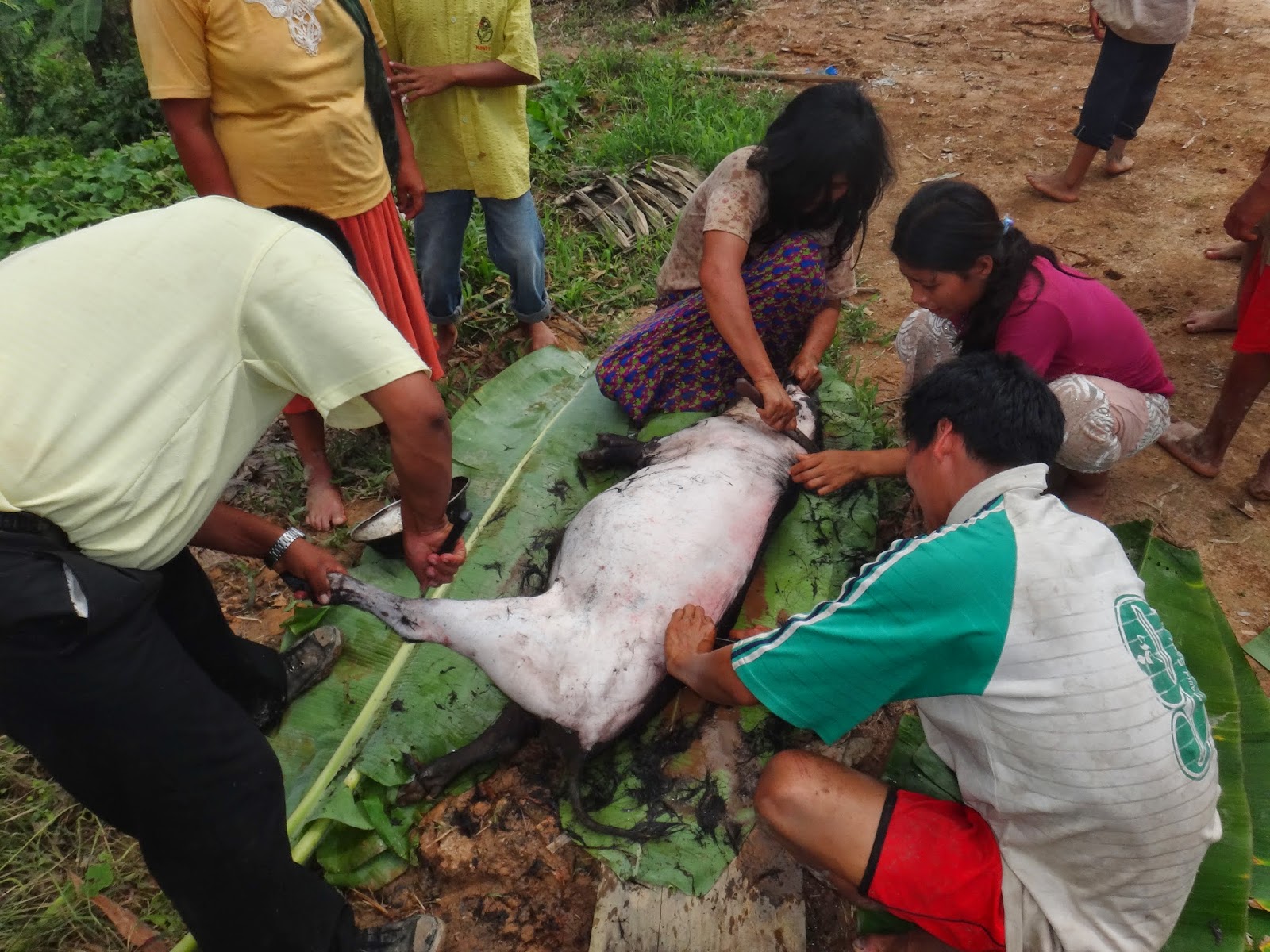The flooding is over, but the community is very much changed. A large stream cuts through one part of the path that was never there before. Here is Kelly crossing the stream. It seems that logs are always used as little bridges.
After the flooding that happened this year, many of the slash and burn horticultural fields were destroyed. Yet, now enough time has passed that some crops are starting to emerge again.
Amazon photo bomb.
Since Campo Bello is fairly close to San Borja, logging hit the community hard in previous decades. Where Anachere is still very much jungle, many of the large trees in Campo Bello have been removed by loggers. Nevertheless, one of the trees by one of the older families' household, about 30 minutes into the forest has a breathtakingly huge tree with interwoven roots.
We stayed in a different house than in our previous trips and this was our morning view, very quiet and beautiful in the mornings.
We tried to visit as much as possible during this trip, it being our last trip for at least a year to this community. We encountered three of the community elders on a sunday afternoon drinking and enjoying watching one of their sons build a fence to keep a newly bought pig from escaping. They had a great time chatting with us.
Visiting with Francisco and Dolores. Francisco is another one of the elders in the community who we've spent a lot of time with. He's always joking around with us and laughing.
During this trip, Asher conducted a lot of weigh days to validate the quantities and weights of people's diet. Francisco looking at fresh fish he caught that morning.
Here is Francisco and his family eating breakfast, a nice plantain and fish stew (jona). Fish appeared in the diet regularly.
To make the jona, you start with green plantains and scrape the plantains before adding it to boiling water and fish.
Asher weighing plantain scrapings before being added to the jona.
Overhead view of a family eating dinner:
People in the community have been using nets to catch the fish. They bring the fish they don't eat to San Borja to sell them in giant coolers. Here is Johnny with his new fishing net.
We realize that we've neglected to talk about what we eat the majority of the time - a huge disappointment for our Ochs family readers. We eat well in the field. We bring three weeks of supplies with us, like potatoes, onions, carrots, rice, pasta, dried meat, and canned meat. We also trade in the communities for fresh fish, plantains, and fruits. Here is Dino at the table for our last meal in the field - boiled plantains, and tuna with vegetables over rice.
It's hard to believe that the year of research trips is tas. We're really looking forward to getting back to the US, but we'll miss the people and many other parts of the field.



















































